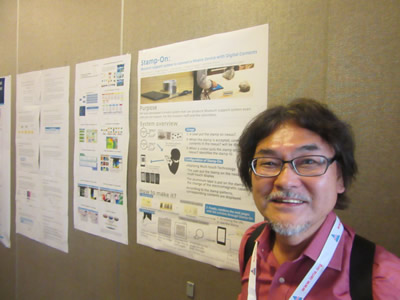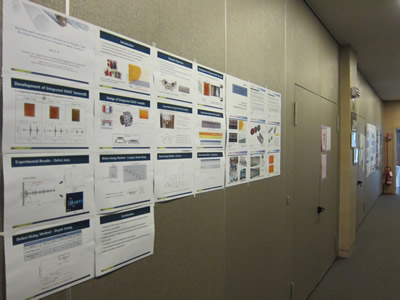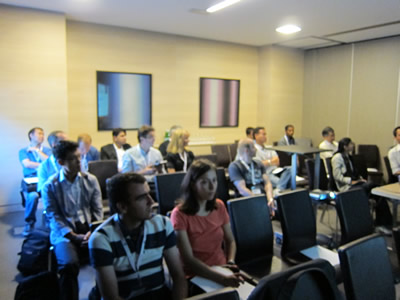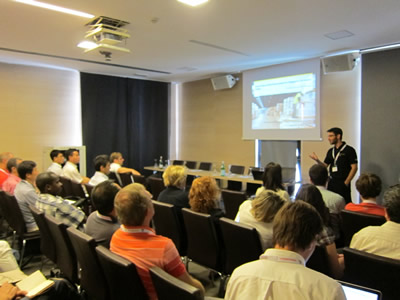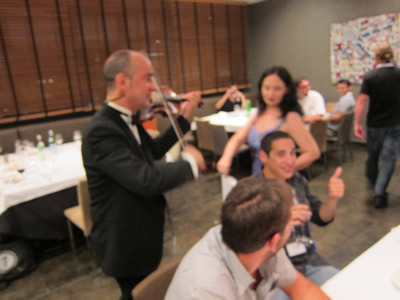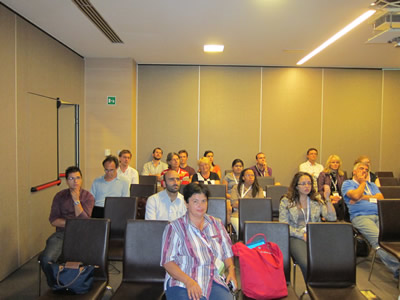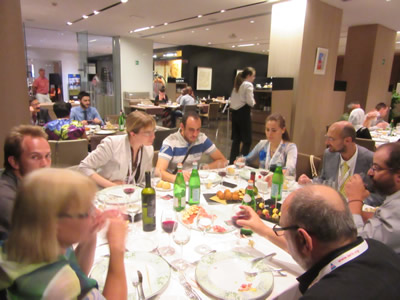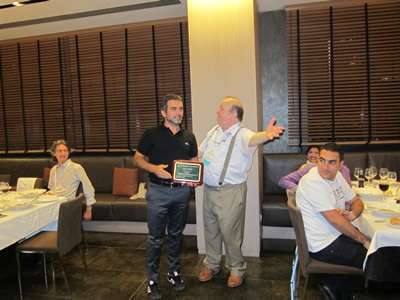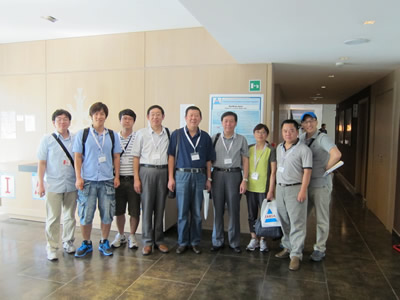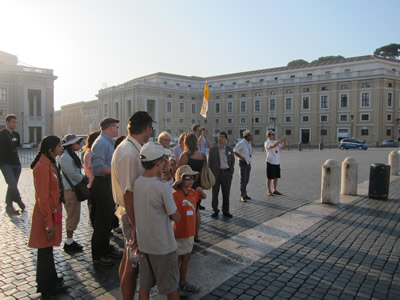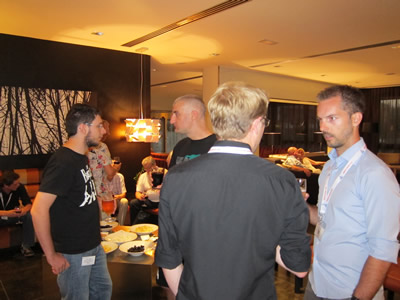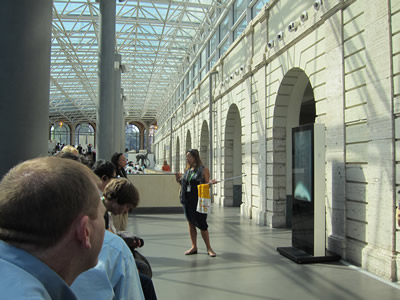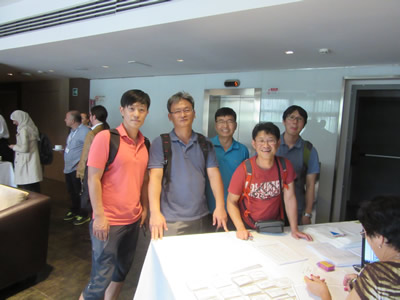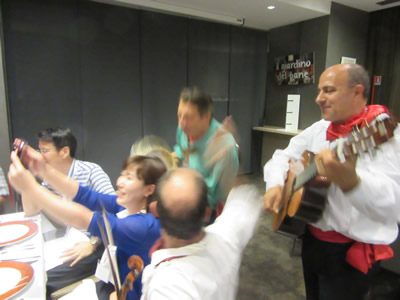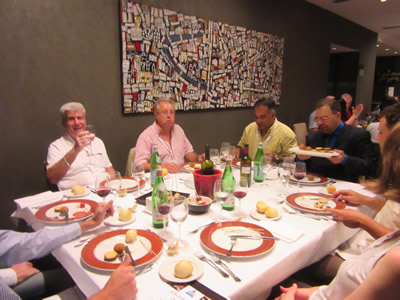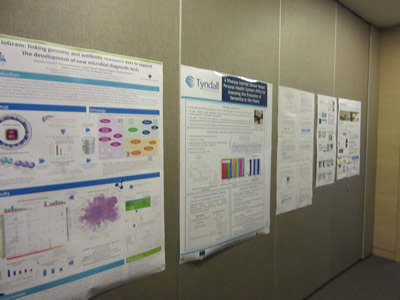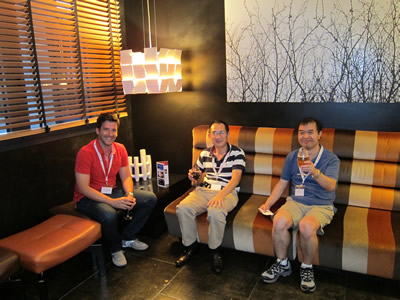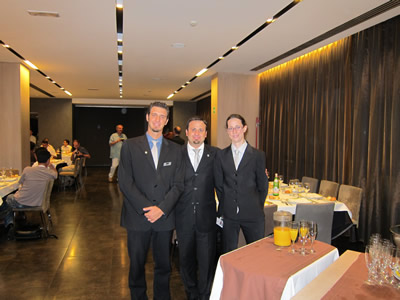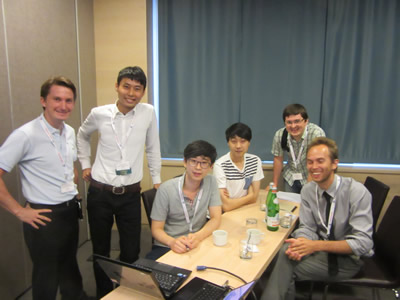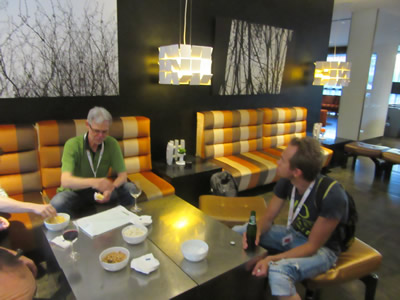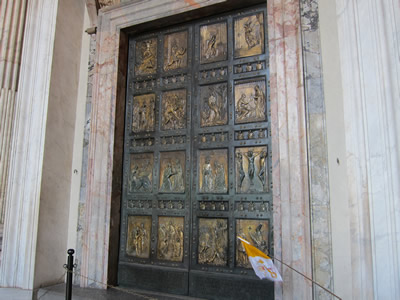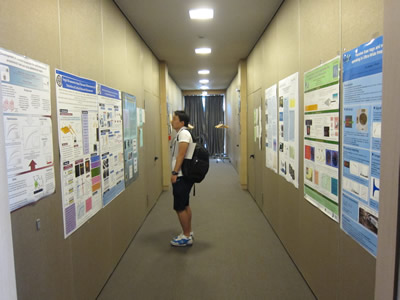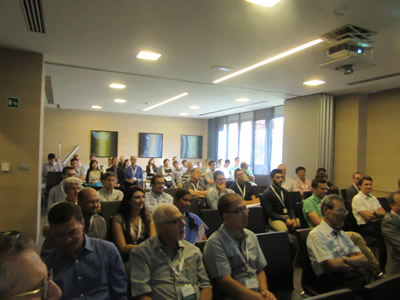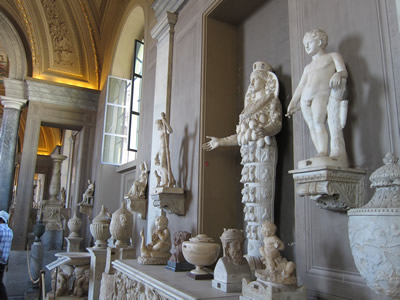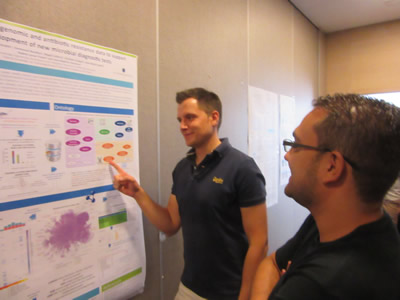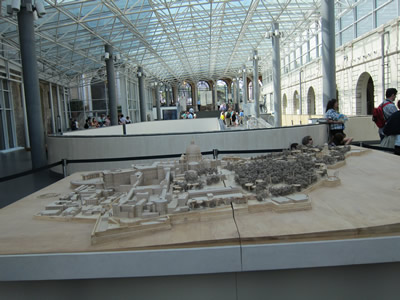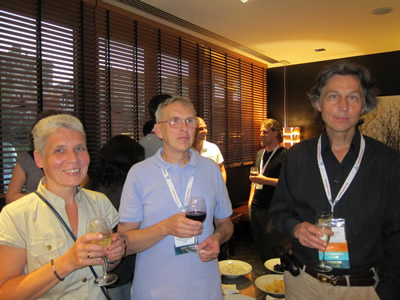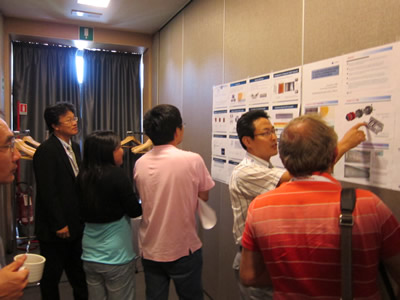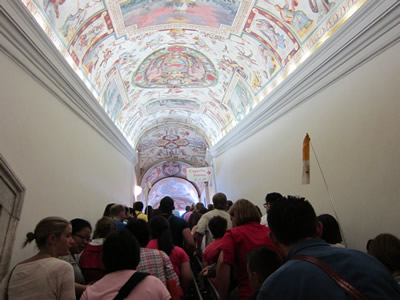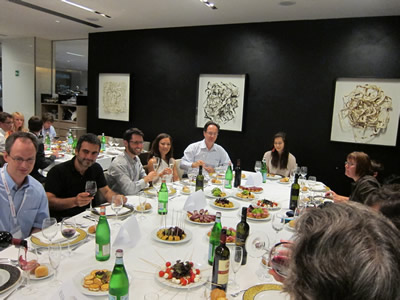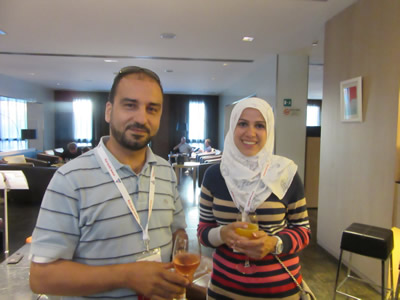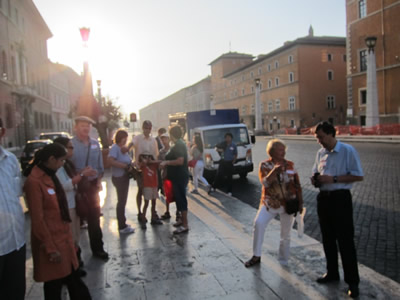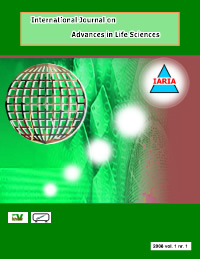SMART ACCESSIBILITY 2018 - The Third International Conference on Universal Accessibility in the Internet of Things and Smart Environments
March 25, 2018 - March 29, 2018
SMART ACCESSIBILITY 2018: Call for Papers
There are several similar definitions for universal accessibility, such as design for all, universal design, inclusive design, accessible design, and barrier free design.�These and similar approaches are relevant to this conference. The focus will be on methods, tools, techniques and applications for human diversity, social inclusion and equality, enabling all people to have equal opportunities and to participate in the information society.
We solicit both academic, research, and industrial contributions. We welcome technical papers presenting research and practical results, position papers addressing the pros and cons of specific proposals, such as those being discussed in the standard fora or in industry consortia, survey papers addressing the key problems and solutions on any of the above topics short papers on work in progress, and panel proposals.
Industrial presentations are not subject to the format and content constraints of regular submissions. We expect short and long presentations that express industrial position and status.
Tutorials on specific related topics and panels on challenging areas are encouraged.
The topics suggested by the conference can be discussed in term of concepts, state of the art, research, standards, implementations, running experiments, applications, and industrial case studies. Authors are invited to submit complete unpublished papers, which are not under review in any other conference or journal in the following, but not limited to, topic areas.
All topics and submission formats are open to both research and industry contributions.
SMART ACCESSIBILITY 2018 conference tracks:
Accessibility by design – fundamentals of inclusive design
Accessibility across the entire system lifecycle; Inclusive design of smart cities, smart buildings and smart environments; Universal design of welfare and everyday technology; Inclusive design approaches, techniques, and tools for inclusive design; Adaptation and personalization - Design for one vs. Design for all; Accessible and privacy preserving identity management and authentication; Multimodality and accessibility; Accessibility, Adaptivity and Design for all in Standardization; User-centric and participatory design; Universal usability; Accessibility and human-computer interaction
Accessibility and digital inclusion
Technology for independent living; Accessibility within e-organizations: Smart and inclusive work spaces; Inclusive working life; Good practices and experiences; Web and Internet accessibility for digital inclusion; Universally designed apps; Citizen services, e-government accessibility e-inclusion; Availability and affordability for everyone; Cognitive and behavioral psychology of end-user; Experiences and scenarios
Interaction-driven accessibility
Interaction patterns in smart environments; New interaction methods and modalities; Smart textiles and surfaces; Brain-Computer Interfaces; Universally accessible graphical and haptic design; Accessible touchscreens; Translation between modalities; Transcribing across the senses; Dynamic visualization; Images for visually impaired users; 3D printable accessible tactile pictures and images; Gestural interfaces; Automatic speech recognition; Visualizing phonemic information; Accessibility-oriented appliance displays; Fabric-based interactive surfaces; Tactile and visual feedback; Sonification techniques; Web datasets as accessible tables; Haptic screen interfaces; Accessible Web browsing
Internet of Things frameworks and accessibility
Personalization adaptation and accessibility functions of standard and specialized Internet of Things platforms; Enabling personalization while keeping privacy; Assistive technologies and interoperability
Assistive applications in Internet of Things scenarios
Independent navigation systems; Mobility for all; Spatial orientation systems; Universally accessible games; Ludology and narratology frameworks; Technologies for engaging various cultural heritages; Accessible multimedia systems; Games for rehabilitation; Voting systems for impaired people; Personal sensing of accessibility maps
Accessibility testing
Criteria and procedures for automated accessibility testing of intelligent user interfaces and Smart Environments; Design guidelines for accessible Internet of Things Applications and services; Use cases and test environments; Experiences, empirical studies on assistive technology scenarios in smart living labs and field tests; Opportunities and challenges of smart environments and the Internet of things for people with disabilities and older people
Accessibility devices and applications
Accessibility portable smart devices; Smartphone and tablet use; Smartphones for elders; Accessibility for Android; Web and mobile platforms; Smart wheelchairs; Smartphones for blind users; Haptic Gloves; Zebra-crossing spotter; Assistive attachments to prosthetic devices; Google glasses; Digital and tactile drawing systems; Accessible media players; Smartwatch for deaf people; Vibro-tactile feedback devices; Drones for navigating visually impaired; Accessible graphing calculator; Assistive mobile apps; Smartphone reminder apps; Mobile phone apps for sign languages; Apps for perception of spaces; Brain Computer Interaction for motor impaired people; Tools for rehabilitation of individuals with brain injury; Interactive and collaborative map for of the visually impaired; Customized 3D-printable tactile maps; Spatial databases for blind travelers; TeX-to-Braille transcribing
Accessibility-oriented e-learning and cognitive training
Computational accessibility environments; Accessible online education; Disabled students' accessibility; Quality of e-learning systems; Supporting bilingual literacy of deaf children, Accessible mobile-learning; Augmented reality tools; e-Testing with interactive images; Audiovisual translation; Mental model construction in blind learners; Educational games for children; Teaching preschoolers with autism; Accessible texts for autism; 3D printing for integrated classrooms; Sensory substitution training; Classes for deaf and hard-of-hearing students; Online courses for intellectually disability students; Teaching accessibility
Social accessibility services
Industry and research collaboration; Learning from practice and technology transfer; Assisting neurodiverse employees; Inclusive and productive technical workforce; Accessibility research; Mentoring people with disabilities; Participating users with mental and cognitive disabilities; Support for cognitively impaired workers; Personal health records for senior healthcare; Accessible mobile biometrics for elderly; Acceptability and accessibility of wearable computing; Accessible services for functional diversity; Performance-impaired people in manual assembly processes; Vocational prompting systems for people with cognitive impairments; Calendars for individuals with cognitive disabilities; Online banking systems for cognitively disable people; School inclusion process; Assistive technology for blind grocery shoppers; Conversational assistive systems; Assistive services for special diseases (Parkinson, Alzheimer, Autism)
Deadlines:
Submission | Dec 08, 2017 |
Notification | Jan 14, 2018 |
Registration | Jan 28, 2018 |
Camera ready | Feb 05, 2018 |
Deadlines differ for special tracks. Please consult the conference home page for special tracks Call for Papers (if any).
INSTRUCTION FOR THE AUTHORS
Authors of selected papers will be invited to submit extended versions to one of the IARIA Journals.
Publisher: XPS (Xpert Publishing Services)
Archived: ThinkMindTM Digital Library (free access)
Prints available at Curran Associates, Inc.
How to submit to appropriate indexes.
Only .pdf or .doc files will be accepted for paper submission. All received submissions will be acknowledged via an automated system.
Contribution types
- regular papers [in the proceedings, digital library]
- short papers (work in progress) [in the proceedings, digital library]
- ideas: two pages [in the proceedings, digital library]
- extended abstracts: two pages [in the proceedings, digital library]
- posters: two pages [in the proceedings, digital library]
- posters: slide only [slide-deck posted on www.iaria.org]
- presentations: slide only [slide-deck posted on www.iaria.org]
- demos: two pages [posted on www.iaria.org]
FORMATS
Only .pdf or .doc files will be accepted for paper submission. All received submissions will be acknowledged via an automated system.
Final author manuscripts will be 8.5" x 11", not exceeding 6 pages; max 4 extra pages allowed at additional cost.
Helpful information for paper formatting for MS Word can be found here.
There is a community provided LaTeX template: the CTAN package iaria (with full IARIA formatting rules, including IARIA citation style, but for providing citation style it is tightly bound to pdflatex+biblatex+biber). In addition, there is also iaria-lite (not bound to pdflatex+biblatex+biber, but compatible with any TeX stack; thus, it cannot provide the IARIA citation formattings, but only the titlepage and content-related IARIA formatting rules). Based on the iaria package, there is a minimal working example as Overleaf template. When you are using the LaTeX templates, please still adhere to the additional editorial rules.
Slides-based contributions can use the corporate/university format and style.
Your paper should also comply with the additional editorial rules.
Once you receive the notification of contribution acceptance, you will be provided by the publisher an online author kit with all the steps an author needs to follow to submit the final version. The author kits URL will be included in the letter of acceptance.
We would recommend that you should not use too many extra pages, even if you can afford the extra fees. No more than 2 contributions per event are recommended, as each contribution must be separately registered and paid for. At least one author of each accepted paper must register to ensure that the paper will be included in the conference proceedings and in the digital library, or posted on the www.iaria.org (for slide-based contributions).
CONTRIBUTION TYPE
Regular Papers (up to 6-10 page article -6 pages covered the by regular registration; max 4 extra pages allowed at additional cost- ) (oral presentation)
These contributions could be academic or industrial research, survey, white, implementation-oriented, architecture-oriented, white papers, etc. They will be included in the proceedings, posted in the free-access ThinkMind digital library and sent for indexing. Please submit the contributions following the instructions for the regular submissions using the "Submit a Paper" button and selecting the appropriate contribution type. 12-14 presentation slides are suggested.
Short papers (work in progress) (up to 4 pages long) (oral presentation)
Work-in-progress contributions are welcome. These contributions represent partial achievements of longer-term projects. They could be academic or industrial research, survey, white, implementation-oriented, architecture-oriented, white papers, etc. Please submit the contributions following the instructions for the regular submissions using the "Submit a Paper" button and selecting the contribution type as work in progress. Contributors must follow the conference deadlines, describing early research and novel skeleton ideas in the areas of the conference topics. The work will be published in the conference proceedings, posted in the free-access ThinkMind digital library and sent for indexing. For more details, see the Work in Progress explanation page. 12-14 presentation slides are suggested.
Ideas contributions (2 pages long) (oral presentation)
This category is dedicated to new ideas in their very early stage. Idea contributions are expression of yet to be developed approaches, with pros/cons, not yet consolidated. Ideas contributions are intended for a debate and audience feedback. Please submit the contributions following the instructions for the regular submissions using the "Submit a Paper" button and selecting the contribution type as Idea. Contributors must follow the conference deadlines, describing early research and novel skeleton ideas in the areas of the conference topics. The work will be published in the conference proceedings, posted in the free-access ThinkMind digital library and sent for indexing. For more details, see the Ideas explanation page. 12-14 presentation slides are suggested.
Extended abstracts (2 pages long) (oral presentation)
Extended abstracts summarize a long potential publication with noticeable results. It is intended for sharing yet to be written, or further on intended for a journal publication. Please submit the contributions following the instructions for the regular submissions using the "Submit a Paper" button and selecting the contribution type as Extended abstract. Contributors must follow the conference deadlines, describing early research and novel skeleton ideas in the areas of the conference topics. The work will be published in the conference proceedings, posted in the free-access ThinkMind digital library and sent for indexing. 12-14 presentation slides are suggested.
Posters (paper-based, two pages long) (oral presentation)
Posters are intended for ongoing research projects, concrete realizations, or industrial applications/projects presentations. The poster may be presented during sessions reserved for posters, or mixed with presentation of articles of similar topic. A two-page paper summarizes a presentation intended to be a POSTER. This allows an author to summarize a series of results and expose them via a big number of figures, graphics and tables. Please submit the contributions following the instructions for the regular submissions using the "Submit a Paper" button and selecting the contribution type as Poster Two Pages. Contributors must follow the conference deadlines, describing early research and novel skeleton ideas in the areas of the conference topics. The work will be published in the conference proceedings, posted in the free-access ThinkMind digital library and sent for indexing. 8-10 presentation slides are suggested. Also a big Poster is suitable, used for live discussions with the attendees, in addition to the oral presentation.
Posters (slide-based, only) (oral presentation)
Posters are intended for ongoing research projects, concrete realizations, or industrial applications/projects presentations. The poster may be presented during sessions reserved for posters, or mixed with presentation of articles of similar topic. The slides must have comprehensive comments. This type of contribution only requires a 8-10 slide-deck. Please submit the contributions following the instructions for the regular submissions using the "Submit a Paper" button and selecting the contribution type as Poster (slide-only). The slide-deck will be posted, post-event, on www.iaria.org.
8-10 presentation slides are suggested. Also a big Poster is suitable, used for live discussions with the attendees, additionally to the oral presentation.
Presentations (slide-based, only) (oral presentation)
These contributions represent technical marketing/industrial/business/positioning presentations. This type of contribution only requires a 12-14 slide-deck. Please submit the contributions following the submission instructions by using the "Submit a Paper" button and selecting the contribution type as Presentation (slide-only). The slide-deck will be posted, post-event, on www.iaria.org.
12-14 presentation slides are suggested.
Demos (two pages) [posted on www.iaria.org]
Demos represent special contributions where a tool, an implementation of an application, or a freshly implemented system is presented in its alfa/beta version. It might also be intended for thsoe new application to gather the attendee opinion. A two-page summary for a demo is intended to be. It would be scheduled in special time spots, to ensure a maximum attendance from the participants. Please submit the contributions following the submission instructions by using the "Submit a Paper" button and selecting the contribution type as Demos. The Demos paper will be posted, post-event, on www.iaria.org.
Tutorial proposals
Tutorials provide overviews of current high interest topics. Proposals should be for 2-3 hour long. Proposals must contain the title, the summary of the content, and the biography of the presenter(s). The tutorial slide decks will be posted on the IARIA site.
Please send your proposals to tutorial proposal
Panel proposals
The organizers encourage scientists and industry leaders to organize dedicated panels dealing with controversial and challenging topics and paradigms. Panel moderators are asked to identify their guests and manage that their appropriate talk supports timely reach our deadlines. Moderators must specifically submit an official proposal, indicating their background, panelist names, their affiliation, the topic of the panel, as well as short biographies. The panel slide deck will be posted on the IARIA site.
Please send your proposals to panel proposal

